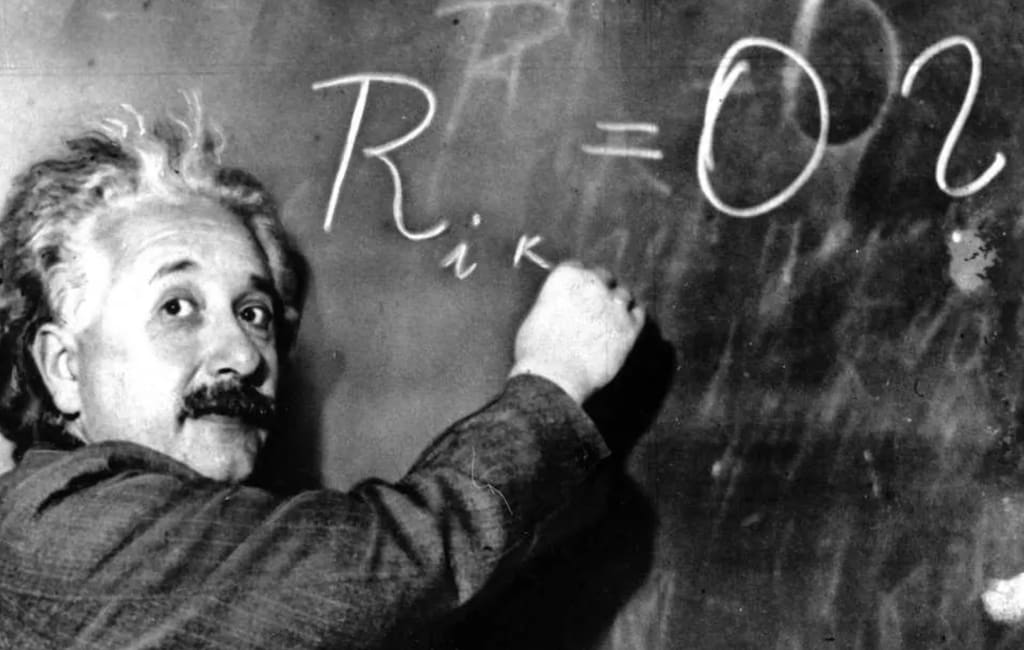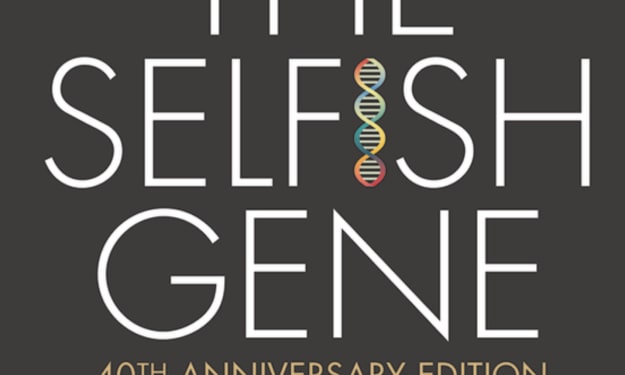Smartest Man In The World
Exploring the Myth and Reality of the Smartest Man in the World: Intelligence, Achievements, and Impact on Society

Introduction
Intelligence is a concept that has fascinated humans for centuries. It has been measured in various ways, with IQ tests being the most common method. However, intelligence is not a straightforward concept and cannot be reduced to a single number. Despite this, society has long sought to identify individuals who are considered the "smartest" or the most intelligent in the world. This concept has led to the creation of the "Smartest Man in the World" title, bestowed upon individuals who excel in various areas of intelligence. In this article, we will explore the concept of the Smartest Man in the World, examine who holds this title today, and discuss what makes them so intelligent. Additionally, we will examine the impact the Smartest Man in the World has had on society and critique the concept's validity. Ultimately, we aim to gain a deeper understanding of intelligence and its role in society.
Who is the Smartest Man in the World?
The idea of the "Smartest Man in the World" has been around for centuries, with many individuals throughout history being considered for the title. In recent years, the Smartest Man in the World has been determined using a variety of metrics, including IQ scores, educational achievement, and contributions to fields such as science, technology, and medicine.
Currently, the Smartest Man in the World is Christopher Hirata, a physicist and former child prodigy who earned a gold medal at the International Physics Olympiad at age 13. He went on to receive a Ph.D. from Princeton University at age 22 and has made significant contributions to the field of cosmology. Hirata's IQ has been measured at 225, which is the highest recorded IQ score in history.
Other individuals who have held the title of the Smartest Man in the World include William James Sidis, who had an estimated IQ of 250-300 and was known for his exceptional mathematical abilities, and Terence Tao, a mathematician who has made significant contributions to number theory and has an IQ score of 230.
Despite the impressive achievements of these individuals, it is important to note that intelligence cannot be reduced to a single number or metric. There are various types of intelligence, including emotional intelligence, spatial intelligence, and creative intelligence, among others. Additionally, cultural biases can impact IQ tests and the selection process for the Smartest Man in the World title.
In the next section, we will examine what makes the Smartest Man in the World so smart and how their intelligence has been measured and tested.
What Makes the Smartest Man in the World So Smart?
The Smartest Man in the World is typically known for their exceptional intelligence, often measured through IQ scores or educational achievement. However, intelligence is a complex concept that encompasses various types of abilities beyond academic performance.
While the Smartest Man in the World may excel in one particular area, they often have strengths in multiple areas of intelligence. For example, Christopher Hirata, the current Smartest Man in the World, is known for his exceptional mathematical and scientific abilities, but he also possesses strong verbal and spatial intelligence. Similarly, William James Sidis, a former holder of the title, was known for his exceptional memory and linguistic abilities, in addition to his mathematical prowess.
In addition to measuring intelligence through academic and cognitive abilities, intelligence can also be measured through emotional intelligence, creative intelligence, and practical intelligence. Emotional intelligence refers to the ability to understand and manage one's own emotions and those of others. Creative intelligence is the ability to come up with innovative ideas and solutions. Practical intelligence is the ability to apply knowledge and skills to solve everyday problems.
The Smartest Man in the World's intelligence has been tested and measured through a variety of methods, including IQ tests, standardized tests, and evaluations of their achievements and contributions to various fields. However, it is important to note that these tests and metrics have limitations and may not fully capture the complexities of intelligence.
In the next section, we will examine the impact the Smartest Man in the World has had on society and the fields they have contributed to.
The Smartest Man in the World and Society
The Smartest Man in the World has often been celebrated for their exceptional intelligence and contributions to society. These individuals have made significant contributions to various fields, including science, technology, mathematics, and medicine, among others.
The Smartest Man in the World has also served as a role model and inspiration for many, especially young people who aspire to excel academically or in their respective fields. Their achievements and accomplishments have been recognized and celebrated by society, and they have often been invited to speak at conferences and events, sharing their knowledge and experiences with others.
However, the concept of the Smartest Man in the World has also been criticized for its narrow focus on academic and cognitive abilities. Some argue that intelligence is a complex concept that cannot be reduced to a single metric, and that other forms of intelligence, such as emotional and creative intelligence, are equally important.
Additionally, the concept of the Smartest Man in the World can perpetuate societal biases and inequalities, as certain groups may be overrepresented or underrepresented in the selection process. This can also reinforce stereotypes and create a narrow definition of intelligence.
In conclusion, while the Smartest Man in the World has been celebrated for their exceptional intelligence and contributions to society, it is important to recognize the limitations of the concept and the need to broaden our understanding of intelligence. By valuing and celebrating different forms of intelligence, we can promote a more inclusive and diverse society that values and nurtures all individuals' unique abilities and strengths.
Critiques of the Smartest Man in the World Concept
While the concept of the Smartest Man in the World has been widely recognized and celebrated, it has also faced criticism and skepticism. One of the main critiques is the narrow focus on academic and cognitive abilities, which may exclude other forms of intelligence and skills that are equally important.
Moreover, the concept of the Smartest Man in the World is often criticized for being based on Western cultural values and biases. For example, IQ tests, which are often used to measure intelligence, have been criticized for being culturally biased and not accounting for the diversity of human experiences and abilities.
The Smartest Man in the World concept has also been criticized for promoting an individualistic view of intelligence, which may overlook the role of community and social support in fostering intelligence and success. Some argue that intelligence is not solely determined by individual abilities but also by environmental factors such as access to education, resources, and social support networks.
In addition, the Smartest Man in the World concept can create unrealistic expectations and pressure on individuals, especially young people who may feel the need to excel academically and live up to the title. This can lead to negative consequences such as burnout, anxiety, and a narrow focus on achievement at the expense of other aspects of life.
Overall, while the Smartest Man in the World concept has its merits and benefits, it is important to be aware of its limitations and the need to broaden our understanding of intelligence and success. By valuing and celebrating diversity and different forms of intelligence, we can create a more inclusive and equitable society that values all individuals' unique abilities and strengths.
Conclusion
The concept of the Smartest Man in the World has been celebrated and scrutinized for decades. While the idea of exceptional intelligence and achievement is impressive, it is important to recognize the limitations of the concept and the need to broaden our understanding of intelligence and success. Intelligence is a complex concept that encompasses various types of abilities beyond academic performance. Emotional intelligence, creative intelligence, and practical intelligence are equally important and should be valued and celebrated.
Moreover, the Smartest Man in the World concept can create unrealistic expectations and pressure on individuals, especially young people who may feel the need to excel academically and live up to the title. It is crucial to recognize that intelligence and success are not solely determined by individual abilities but also by environmental factors such as access to education, resources, and social support networks.
In conclusion, while the Smartest Man in the World concept has its merits and benefits, it is crucial to recognize its limitations and strive to create a more inclusive and equitable society that values all individuals' unique abilities and strengths. By promoting diversity and different forms of intelligence, we can foster a society that values the contributions of all individuals and celebrates their achievements and successes.
About the Creator
Samuel
I write about Science/Tech/Business & Anything that can give value to people ❤️
I'm on YouTube too guys feel free to check out my channel here: www.youtube.com/@sambladeco
Enjoyed the story? Support the Creator.
Subscribe for free to receive all their stories in your feed. You could also pledge your support or give them a one-off tip, letting them know you appreciate their work.






Comments
There are no comments for this story
Be the first to respond and start the conversation.